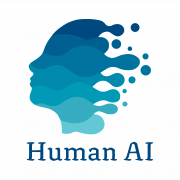A reflection on self-knowledge
How can we teach to know the world as an object without first learning to know ourselves as subjects?
“Autoconocimiento y formación: más allá de la educación en valores”
Self-knowledge helps us not only to understand ourselves better, but also enables us to identify our personal and professional goals in a more accurate, realistic and meaningful way. This valuable aspect of our development, however, is often overlooked in education. We focus on acquiring knowledge and technical skills, but rarely stop to explore our own identity.
Gnoseological imperative
Importance of self-knowledge
The claim of self-knowledge is as old as humanity: “know yourself”. The well-known Greek aphorism is part of that “learning to be”, that basic and ontological competence of our life and our personal development. The first step, therefore, following the Greek line, would be to recognize that we are ignorant of ourselves: “I only know that I know nothing” or that I know nothing, as we would say with Socrates.
Likewise, Kant affirmed that self-knowledge, for reason, was “the most difficult of all its tasks”. Precisely because the philosopher communicates the idea of a complete, finished and perfect self-knowledge, and not as the possibility of a gradual process of knowledge, diversified in progressive moments. The need therefore arises for a process of personal growth that includes this gnoseological aspect: to be able to develop a foundation oriented to find out gradually and in depth who and how we are in order to understand why and for what purpose we act.
Pedagogical imperative
Pedagogical and didactic importance
“Self-awareness is perhaps the greatest and most misdiagnosed learning difficulty, and the most unnoticed educational failure of human beings.”
Agustín de la Herrán Gascón – professor
Beyond, therefore, being an individual imperative, self-knowledge is also a pedagogical requirement: “self-knowledge is an educational right that, although it may not be interesting for the profitability of social systems, it is interesting for personal maturity or evolution. Therefore, from the point of view of training, its teaching, is a professional imperative of the teacher”, says Agustín de la Herrán Gascón, pedagogue, doctor in Education and professor at the Universidad Autónoma de Madrid.
Didactic premises
- Self-knowledge is the axis of personal maturity, which in turn is the axis of formation, which in turn is the fundamental purpose of didactic
- It is also a radical (spiral of transversals) or perennial theme. Teachers can contemplate it as an object and objective of reflection and teaching.
- It can be communicated directly (by dealing with it) or indirectly (from other contents), as long as one acts not only with science, but also with awareness.
- Before it can be taught, sufficient experience of awareness and experiential self-knowledge is required.
- The didactic principles for this are coherence-exemplarity, internalization-evolution and the transmission of more concern for knowledge-consciousness, as a function of human evolution (our own, others’, collective and human in general).
Get to know yourself better, to be better.
Beyond data, there is information, beyond information there is knowledge, beyond knowledge, there is decision making, and subsequently the transformation of the person. The process of self-knowledge starts, therefore, from the knowledge of the data to end in the configuration and transformation of the personal being.
“Self-knowledge is a process linked to a result: the human being “is not born as a self […] he learns to be a self.”
K. Popper
An education, therefore, that favors the realization of meaningful and creative learning is undoubtedly a fertile education; and a Didactics that adopts self-knowledge as a formative reference can always be even more useful to know oneself better and be able to be better. Thus, self-knowledge leads the student to be able to integrate knowledge and at the same time to internalize himself as a person, a horizon to which education should aspire.
If you work for the evaluation, assessment and development of people, ask for our free demo:





